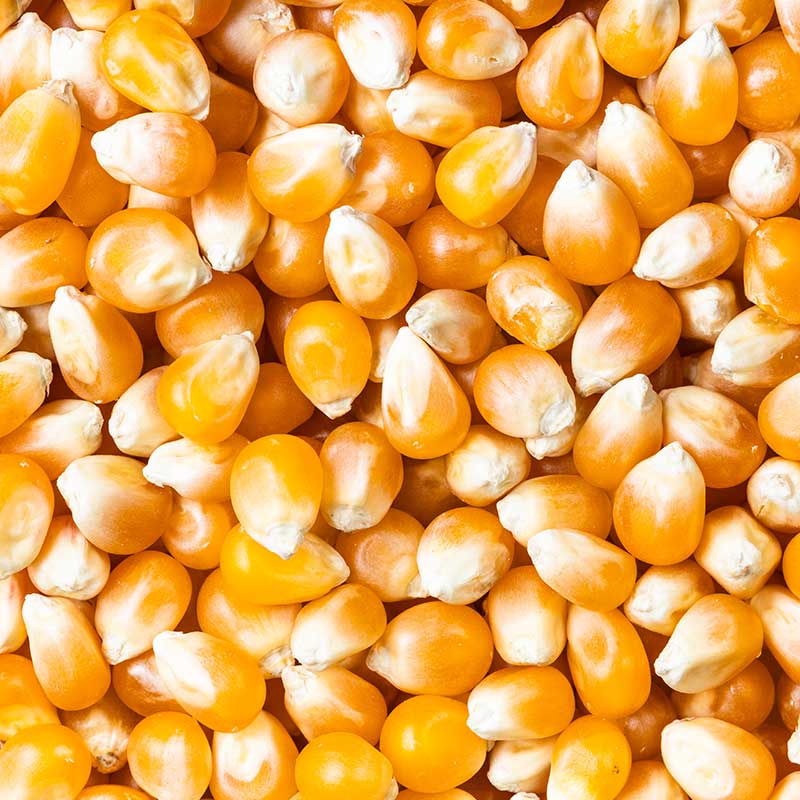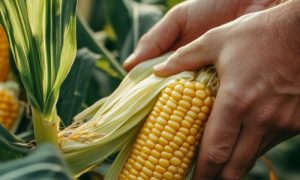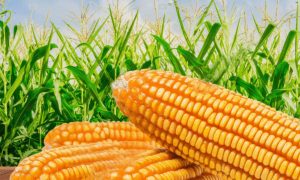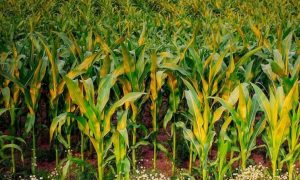Maize farmer sees the light after biotech trials

Around 20 years ago, plant biotechnology was first introduced in Mzansi. Farmers’ decisions to grow biotech crops or conventional crops are still up for debate today. We learn more about the world of plant biotechnology through the perspective of a farmer who has gone through biotech maize trials with CropLife SA.
Jackson Baloyi, a farmer from Giyani in Limpopo, has journeyed with CropLife SA and participated in trials with maize varieties containing both insect-resistant or Bt trait technology for protection against stalk borers, as well as herbicide tolerance for weed control.
According to Baloyi, he was not aware of the technology before being selected to participate in the biotech demonstration trials. But that did not stop him from being curious and wanting to learn. The main aim for Baloyi was to expand his knowledge.
Willingness to learn“I was not aware of the technology at all and accepted the trials because even those that started farming in 1950 kept on learning. I accepted to gain knowledge and learn more about maize production,” says Baloyi.
Meanwhile, the Mega Biotech trial coordinator, Lesley Mabasa, says when he met Baloyi for the first time, he realised that Baloyi knew a lot about maize production, but only conventional maize especially green mielies.
“I realised that he doesn’t know at all about GMOs. He was reluctant about the technology because he thought he knew what he was doing. But I also acknowledge that he opened up to be taught new techniques,” says Mabasa.
For Baloyi, the best experience about the trial was the fact that the maize was not eaten by targeted pests.
“The maize that you planted here – the ones that are not eaten by pests and the ones that are eaten – taught me a great lesson. I will benefit from using this technology because I’ll save money that would’ve been used to buy spraying chemicals for pests and weeds,” says Baloyi.
Challenges and benefits It wasn’t all smooth sailing, says Mabasa, and he recalls there were a few biotic and abiotic challenges during the trials. There were also guinea fowls that were eating the germinating seeds.
“But the farmer was able to draw lessons from soil sampling and why we do it. He started understanding the difference between Bt and non-Bt maize, while his maize was still small because his farm was attacked by fall armyworm,” says Mabasa.
Baloyi has completely shifted his perspective on plant biotechnology since the demonstration trials. He is determined to thrive as a farmer and his journey has become easier with the amount of money he saves.
“If it was up to me, all maize seeds should be changed and be insect-resistant because pests make it difficult for small-scale farmers to thrive. I wish all can plant maize similar to what has been planted on my farm.”
Baloyi cannot contain his excitement about the success of the demonstration trials. He spreads the word to neighbouring smallholder farmers. He also tells other farmers that have not attended the farmers’ information day about biotechnology.
“I am busy spreading the word that we smallholders should plant maize not eaten by insects. Even those farmers who didn’t attend the farmers’ information day that took place at my farm agree with that,” says Baloyi.
Advice to other farmers
Baloyi’s advice to other farmers is to build as much knowledge around plant biotechnology to ensure that they make the right decision when they decide to adopt the technology.
“It can help with knowledge, high yields, profitability, and help them to plant maize on a commercial scale. I can advise all smallholders to adopt the technology because the maize that is eaten by stalk borer makes them lose profits at the end,” says Baloyi.
On the other hand, Mabasa extends the same advice for farmers to learn about technology.
“I would advise farmers to seek knowledge about maize seeds first. Given demonstration trials they should go and learn about the technology so that they make informed decisions when it comes to the type of maize seeds they should use,” says Mabasa.
Source Link: https://www.foodformzansi.co.za/maize-farmer-sees-the-light-after-biotech-trials/

















